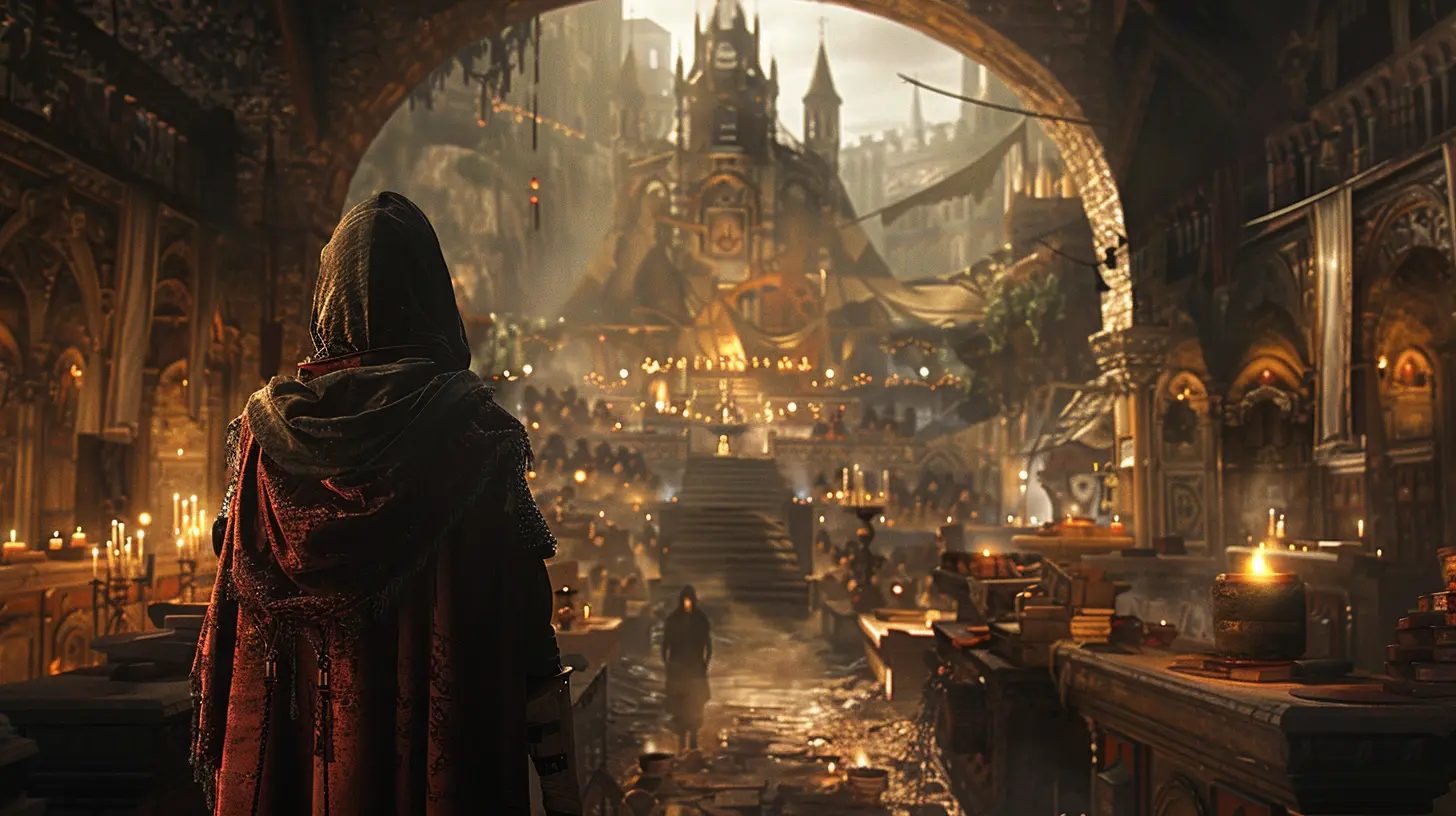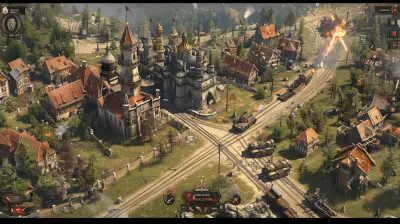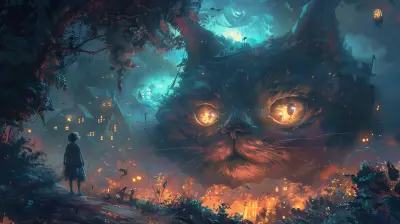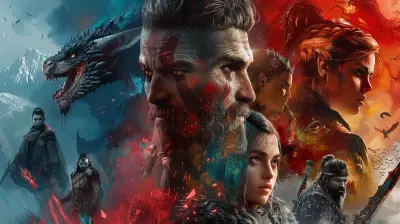How Single Player Games Keep Storytelling Alive
2 July 2025
Let’s be honest – in a world dominated by fast-paced multiplayer titles, battle royales, and esports fever, it's easy to assume that single-player games are quietly fading into the shadows. But here’s the thing: they’re not. In fact, they might just be the unsung heroes that are keeping the art of storytelling in video games not only alive—but thriving.
If you're anything like me, there’s something magical about getting lost in a game world crafted just for you. One where the story unfolds based on your decisions, your pace, and your unique experience. So, let’s sit down, grab a cup of coffee (or a health potion), and talk about why single-player games are still the beating heart of video game storytelling.
The Soul of a Game: Why Story Matters
Before we zoom in on single-player games, let’s talk about storytelling in games in general. Why does it even matter?Well, think about your favorite game. Chances are, it’s not just because of its graphics or gameplay mechanics. What sticks with us long after we’ve put the controller down is the story—the way it made us feel, the characters we grew to love (or hate), and the worlds we didn’t want to leave.
Stories give games emotional weight. They give context to your actions and make your journey meaningful. Without a story, some games feel more like simulations or interactive chores rather than immersive experiences.
Why Single Player Games Do It Best
Here’s the real talk: multiplayer games are fun. They’re competitive, social, and chaotic in the best way. But when it comes to telling a deep, personal, and emotionally resonant story? Single-player games take the crown.Why? Because they’re designed to focus on you.
Let’s break it down.
1. Player-Centric Narrative
In single-player games, you’re not just another player in a massive battlefield. You are the protagonist. The story revolves around you—your decisions, your actions, your morals.Take something like The Witcher 3 or Red Dead Redemption 2. These games wrap you in a narrative that adapts to your personality and play style. You're shaping the journey, not just tagging along for the ride.
2. Deep Character Development
When's the last time you bonded deeply with a character in a multiplayer game?Exactly.
Single-player games give writers the time and space to fully develop characters. Think about Ellie in The Last of Us, Aloy in Horizon Zero Dawn, or Arthur Morgan in Red Dead Redemption 2. These characters aren’t just AI companions—they’re complex people who evolve over time. You cry with them, laugh with them, and sometimes, you lose them—and it hurts.
3. No Distractions, Just Immersion
Let’s be honest, multiplayer games can be messy. Voice chats filled with noise, constant pings, random team members pulling you off-course. It’s fun, but hardly the place for nuanced storytelling.Single-player games, on the other hand, invite you into a world of focus and immersion. There’s no rush, no leaderboard, no competition—just you and the story unfolding one moment at a time.
Milestone Games That Nailed Storytelling
Let’s take a quick stroll down memory lane and highlight some giants that showed us how powerful storytelling in single-player games can be.🎮 The Last of Us (2013)
This gem redefined narrative in gaming. The emotional bond between Joel and Ellie felt more like a movie than a game. And that gut-punch of an ending? It sparked debates that rage to this day. Naughty Dog didn’t just make a game—they told a story that hit home for millions.🛡️ God of War (2018)
A brilliant reboot that turned Kratos, the embodiment of rage, into a layered father figure grappling with love and loss. It blended Norse mythology with a deeply personal journey between father and son—and it was breathtaking.🧛♂️ Bioshock Infinite (2013)
Twisting timelines, philosophical dilemmas, and jaw-dropping plot twists—that’s Bioshock Infinite. It’s a masterclass in storytelling with a finale that had players’ minds spinning for years.👨🚀 Outer Wilds (2019)
Ever felt like a tiny dot in the vast universe? Outer Wilds turned that feeling into a narrative experience. It’s subtle, emotional, and deeply philosophical—a quiet, spacefaring adventure full of wonder and mystery.
Why Developers Still Choose Single Player
Now, from a dev’s perspective, single-player games are a different beast. They’re more expensive, riskier, and take longer to build. So why do developers—especially indie ones—still go for it?➕ Total Creative Control
Single-player games give creators more freedom. No need to worry about balancing multiplayer mechanics or integrating monetization schemes. They can focus purely on telling a story the way they want to.➕ Long-Term Impact
A good story sticks. While multiplayer games might have peaks in popularity, a narrative-driven single-player title can become timeless. Just look at Skyrim, Undertale, or Mass Effect—these games are still talked about years later.➕ Emotional Connection
Creators want to move people. There’s something deeply gratifying about knowing your game made someone cry, reflect, or see the world a little differently. And single-player stories do that best.The Technology Boosting Storytelling Today
Technology has seriously leveled up, and it’s playing a huge role in how storytelling is evolving in games.🎭 Motion Capture and Voice Acting
Remember when game characters used to deliver lines like a cardboard cutout? Not anymore. Thanks to motion capture and top-tier voice acting, characters now express genuine emotions. It’s like watching a Hollywood film—except you’re in it.🎨 Photorealistic Graphics
Better graphics mean better immersion. From facial expressions to sweeping landscapes, games now have the visual fidelity to really draw you in. Titles like Hogwarts Legacy and Cyberpunk 2077 showcase just how real a fantasy world can feel.🤖 AI and Dynamic Storytelling
AI is also starting to reshape storytelling. Some new games are experimenting with narratives that evolve organically based on how you play. Imagine a game that writes itself around your choices—not just scripted branches, but new twists every time you reload.Futuristic stuff, right?
The Role of Indie Games
Now, big blockbusters are great—but let’s give a shout out to indie games. These small teams with big dreams are often the boldest storytellers out there.🌌 Titles Like:
- Celeste – A touching metaphor for mental health wrapped in a pixel-perfect platformer.- Firewatch – A first-person narrative game about loneliness, relationships, and purpose.
- Undertale – A quirky RPG that turned genre tropes on their head.
These games prove you don’t need a massive budget to tell an unforgettable story. You just need heart.
Are We in a Single Player Renaissance?
Honestly? Yes.Games like Elden Ring, Spider-Man 2, and Starfield are proof that single-player games are not only still relevant—they’re thriving. These titles push boundaries in world-building, character development, and interactive storytelling.
We’re witnessing a storytelling renaissance wrapped in digital art, and single-player games are leading the charge.
Multiplayer Isn’t the Enemy, But…
Don’t get me wrong—multiplayer games have their place. Some of them even have solid stories (Destiny 2 is a good example). But when the goal is to deliver an experience that pulls at your heartstrings, lingers in your mind, and maybe teaches you something about yourself?That’s where single-player games shine.
The Future of Storytelling in Games
So what’s next? Will AI write our stories for us? Will VR make us part of them? Maybe. But one thing’s for sure: players will always crave a good story.And as long as that’s true, single-player games will keep storytelling alive. They’re the campfires we gather around, the novels we step into, and the mirrors that show us who we are.
Final Thoughts
In the end, single-player games are more than just distractions or digital playgrounds. They’re interactive stories that speak to us individually. They make us think, feel, and connect.So next time someone says single-player games are dying, just smile. Because you and I both know—they're not just alive; they’re telling stories that will echo for generations.
all images in this post were generated using AI tools
Category:
Single Player GamesAuthor:

Leandro Banks
Discussion
rate this article
2 comments
Soleil McClellan
In solitude’s embrace, tales unfold, Whispers of heroes, in pixels bold. With every turn, a world ignites, Single-player dreams weave endless nights.
September 17, 2025 at 2:19 AM

Leandro Banks
Thank you! You beautifully capture the essence of single-player games as intimate storytelling experiences that ignite our imagination.
Kieran Vaughn
In quiet worlds, lone heroes weave tales that linger in hearts.
July 6, 2025 at 4:56 AM

Leandro Banks
Thank you! Single-player games beautifully capture the essence of storytelling, allowing players to forge deep emotional connections with characters and narratives in intimate settings.


